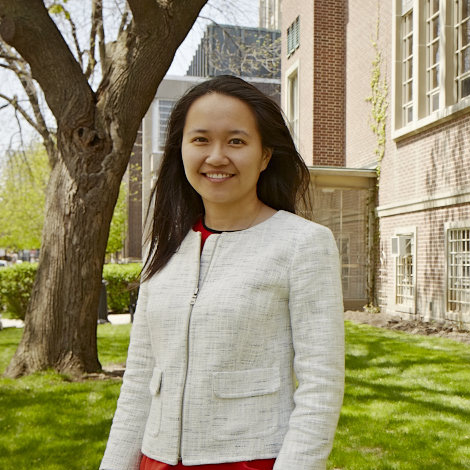Jielai Zhang

Jielai Zhang
Alumna, PhD, Astronomy & Astrophysics, GG Gold Medal Recipient
“My passion for asking questions and finding answers has flourished.”
I am a Chinese-born Australian who fell in love with physics at the age of 16. I completed my BSc and BEng at the University of Sydney, spending a year abroad at the Imperial College of London in order to gain more international experience.
U of T is host to a world-renowned astronomy community. It consists of the Department of Astronomy and Astrophysics, the Canadian Institute for Theoretical Astrophysics, and the Dunlap Institute for Astronomy and Astrophysics. Each of these institutions excels at one aspect of astronomical research: observational astronomy, theoretical astrophysics, and instrumentation, respectively. Being exposed to and versed in all three facets of astronomy makes me a stronger and well-rounded researcher.
U of T met my expectations of excellence and diversity in research. However, I also quickly learned that the department is welcoming and supportive of students as individuals. I feel completely comfortable going to any professor, postdoctoral fellow, or graduate student to ask a question or seek advice. I feel people in the department not only care about my research, but also about my well-being and other passions.
The Dunlap Institute has an education and outreach mandate. This has allowed me and a team to develop and present an Astronomy Summer School in Nigeria for undergraduate students. Such opportunities are hard to come by as an early graduate student. However, with the support of the Dunlap Institute, graduate students have many more professional development opportunities, including pursing education and outreach.
This vision of outreach applies to the whole U of T community, too. My involvement with the Science Rendezvous Executive Committee connected me with professors of various departments and schools. Their enthusiasm to engage with the public as well as their research is evident.
My passion for asking questions and finding answers has flourished, even in the face of the inevitable difficulties and challenges of graduate school. I hope to continue asking astronomical questions in an academic setting.
Graduate school takes five years of your life. Make sure the place you choose challenges and nurtures you academically, but allows you to grow as a person. Think carefully what you want out of those five years, then find a place that will deliver them. The best way to investigate a place is to speak to graduate students and professors at departments where you plan to apply.
